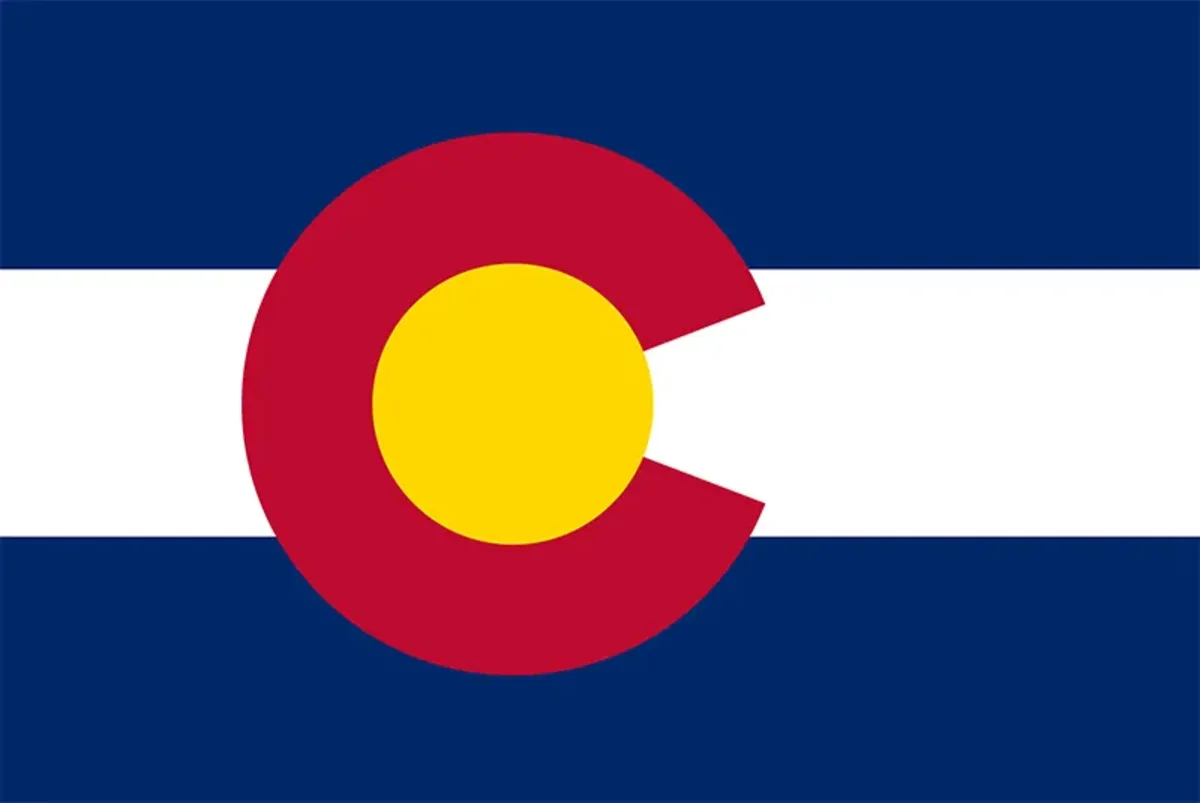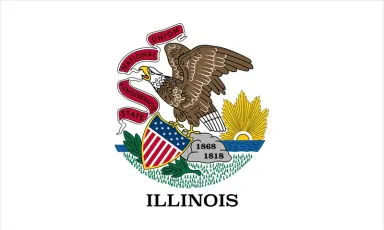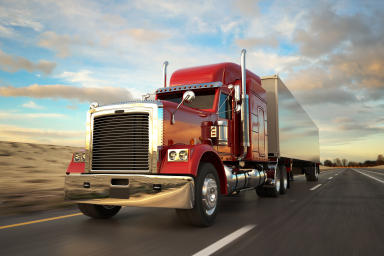Colorado Trucking Laws

A trucking accident can have devastating consequences and leave victims uncertain about their legal rights and options. According to the Colorado Department of Transportation, over 70 trucks were involved in fatal collisions in 2020. While these accidents occurred throughout the state, many happened along high-crash corridors, such as Interstates 25 and 70, making these areas a place to practice extreme caution on the roads. As semi-truck accidents continue to be a problem for Colorado, motorists need to know the specific laws surrounding trucking accidents and how to avoid them.
This page provides Colorado residents with information on trucking accident laws, including federal and local safety regulations, the statute of limitations, insurance requirements for trucking companies, and Colorado's at-fault policy. In addition, this page also provides various resources for victims of trucking accidents in Colorado, including how to find a well-qualified personal injury attorney, legal aid organizations for low-income individuals, and federal and state organizations.
Colorado Chains Law
The Colorado Chains Law is activated when the Colorado Department of Transportation (CDOT) declares that certain roads or highways are in a "chain up" or "traction law" condition. This means that the road conditions are such that vehicles must have chains on their tires to drive safely.
Commercial vehicles, including semi-trucks, must have chains on their tires when the chain law is in effect. The chain law applies to all commercial vehicles, including semi-trucks, buses, and vehicles with more than two axles.
If a truck driver is caught without chains on their tires while the chain law is in effect, they may be subject to fines and penalties. To report a chains law violation, contact CDOT via their website.
Size and Weight Restrictions for Semi-Trucks in Colorado
In Colorado, the size and weight restrictions for semi-trucks are determined by the Colorado Department of Transportation (CDOT). The maximum dimensions for a semi-truck are:
Height: 14.5 feet
Width: 8.5 feet
Length: 75 feet, including the semi-truck and trailer
The weight restrictions for semi-trucks in Colorado vary depending on the number of axles on the truck, but generally, the maximum gross weight for a semi-truck is 80,000 pounds.
Size and weight restrictions are essential for preventing truck accidents because they help to ensure that the roads and bridges can handle the weight and size of the trucks. Overweight and oversized trucks can cause significant damage to the infrastructure, making the streets more dangerous for other drivers. Additionally, larger and heavier trucks are more difficult to maneuver and stop, increasing the risk of accidents.
Inspection and Maintenance Regulations for Semi-Trucks in Colorado
In Colorado, semi-trucks are subject to federal and state inspection and maintenance regulations. These regulations are in place to help ensure that the vehicles are safe to operate and are less likely to cause accidents.
Federal regulations, set by the Federal Motor Carrier Safety Administration (FMCSA), require semi-trucks to undergo regular inspections, including annual inspections for the entire vehicle and more frequent checks on specific components such as brakes and tires. Colorado also has regulations regarding semi-truck inspections, including regular and periodic reviews of the vehicle's brakes, tires, lights, and other safety systems.
Regular inspections and maintenance can help identify and address potential safety issues before they lead to accidents. By ensuring that semi-trucks are in good working condition, these regulations improve the overall safety of our highways and reduce the number of accidents caused by poorly maintained vehicles.
Colorado Hours of Service Regulations
The Hours of Service (HOS) regulations for truckers in Colorado are set by the Federal Motor Carrier Safety Administration (FMCSA). These regulations are in place to help truck drivers get adequate rest and are less likely to cause accidents due to fatigue.
The current HOS regulations for truck drivers in Colorado dictate that truck drivers must adhere to the following restrictions:
Truck drivers can only drive for up to 11 hours after having ten consecutive hours off duty.
Truck drivers can only drive up to the 14th consecutive hour after coming on duty, followed by ten consecutive hours off duty.
Truck drivers must take a 30-minute break after eight hours of driving.
Truck drivers cannot drive after 60 hours on duty in seven consecutive days. However, a driver can start driving again after taking 34 or more consecutive hours off duty.
Enforcing these regulations is vital to help prevent accidents caused by fatigued truck drivers, as fatigue can lead to decreased reaction times and impaired judgment, which increases the risk of accidents. To report a suspected HOS violation, call the DOT Complaint Hotline at (888) 368-7238.
Emergency Lighting Regulations for Semi-Trucks in Colorado
In the state of Colorado, truckers must have emergency lighting on their vehicles to increase visibility and improve safety on the road. This typically includes a combination of red and white strobe lights, which indicate that the truck is stopped or moving slowly on the side of the road.
Having emergency lighting on a truck is essential because it helps other drivers quickly and easily identify a stopped or slow-moving vehicle on the road, which can help to reduce the risk of accidents. Emergency lighting can also alert other drivers to potential hazards or construction zones, which can also help improve safety on the road.
Federal and state laws regulate the use of emergency lighting, and truckers must follow specific guidelines regarding the placement and use of these lights. In addition, truckers must regularly check and maintain their emergency lighting systems to ensure they are in proper working order.
Colorado Turnpike Double Trailer Ban
The Colorado Turnpike Double Trailer Ban refers to a regulation that prohibits using double trailers, also known as twin trailers or semi-trailers, on certain sections of the state's turnpike system. Therefore, truck drivers are not allowed to operate a vehicle pulling two trailers behind a single tractor unit on certain parts of the turnpike.
This regulation is in place because double trailers are more prone to accidents and can cause more damage in the event of a crash. They are also more challenging to maneuver and control, especially on winding and mountainous roads. This ban is intended to increase safety for all drivers on the turnpike.
The ban is only applied to specific sections within the Colorado turnpike system, such as the I-25 and I-70 corridors which are considered more challenging in terms of weather conditions and traffic congestion. The ban is also subject to change based on the current state of the road, traffic, and weather conditions.
Colorado Commercial Trucking Insurance Requirements
The Federal Motor Carrier Safety Administration (FMCSA) and the state of Colorado govern the insurance requirements for truckers in Colorado.
According to FMCSA regulations, all commercial vehicles operating in interstate commerce must carry liability insurance. The minimum coverage levels are $750,000 for cargo and $1,000,000 for general liability insurance.
Additionally, the state of Colorado also requires that all commercial vehicles operating within the state carry liability insurance with minimum coverage levels of:
$25,000 for bodily injury or death of one person in any one accident.
$50,000 for bodily injury or death of two or more persons in any one accident.
$15,000 for damage to the property of others in any one accident.
These insurance requirements are in place to ensure that trucking companies and their drivers have the financial resources to pay for any damages or injuries resulting from an accident. It's also crucial for trucking companies and commercial drivers to have additional coverage, such as uninsured/underinsured motorist insurance, cargo insurance, and non-trucking liability insurance, to protect themselves and their assets.
How Much Can Someone Sue For a Truck Accident in Colorado?
In Colorado, there is no specific limit on the damages a person can sue for in a truck accident case. The number of damages a person can recover will depend on the particular facts and circumstances of the accident and the extent of the injuries and damages suffered.
The following are the types of damages that a victim can sue for in a truck accident case in Colorado:
Economic damages, including medical expenses, lost wages, and lost earning capacity.
Non-economic damages, including pain and suffering, emotional distress, and loss of enjoyment of life.
Punitive damages are awarded in cases where the defendant’s actions were reckless or negligent.
Damage caps may apply in some cases, which limits the amount that victims can recover for non-economic damages, such as pain and suffering. An experienced attorney is best equipped to assess the facts of a case and determine the potential value of a claim.
The Statute of Limitations in Colorado
In Colorado, the statute of limitations for a personal injury claim resulting from a trucking accident is generally three years from the date of the accident. Therefore, an individual has three years from the accident to file a lawsuit against the liable party.
There are a few exceptions to the general three-year statute of limitations for trucking accidents in Colorado. These include the following:
Discovery rule: If an individual discovers the injury or its cause after the three-year statute of limitations has expired, they have three years from the date of discovery to file a lawsuit.
Minor plaintiffs: If the individual filing the lawsuit is a minor at the time of the accident, the statute of limitations is extended until three years after the individual turns 18.
Governmental entities: If the individual is filing a claim against a governmental entity, there may be shorter notice requirements and different statute limitations.
Fraud: If the individual can show that the defendant fraudulently concealed the cause of the accident or injury, the statute of limitations may be extended.
It is best to consult with an attorney who specializes in personal injury law to make sure of the statute of limitations in your case.
Is Colorado a no-fault state?
No, Colorado is not a no-fault state for trucking accidents. Individuals involved in a trucking accident can file a claim or lawsuit against the at-fault party to recover damages for their injuries and losses. However, Colorado does have a modified comparative fault rule, which means that if an individual is found to be partially at fault for an accident, their recovery may be reduced by their percentage of fault.
Legal Resources for Colorado Trucking Accident Victims
In Colorado, there are many legal resources for trucking accident victims. The following list includes some options for individuals seeking to pursue legal action, including help navigating the legal system, how to acquire additional evidence from government associations, and the lawyers and legal aid organizations who can help you develop a winning case.
Colorado Bar Association
The Colorado Bar Association (CBA) provides a directory of licensed attorneys who can help truck accident victims navigate the legal process and recover damages. Additionally, the Bar Association can provide information on local legal aid organizations that can assist with legal representation for those who cannot afford it. They also have a referral service that can help you find a lawyer that fits your needs and budget.
Colorado Legal Services
Colorado Legal Services (CLS) is a non-profit organization that provides free legal assistance to low-income individuals and families in Colorado. They offer a wide range of legal services, including help with issues relating to housing, consumer rights, public benefits, and more. For trucking accident victims, CLS may be able to assist with navigating the legal process, including filing a personal injury claim or a lawsuit against the responsible parties. They may also be able to provide representation in court and help with negotiations for a settlement. However, their ability to assist a specific individual depends on their income and the legal issues involved in their case.
Colorado Department of Transportation
The Colorado Department of Transportation (CDOT) is primarily responsible for maintaining and constructing the state's highways and roads, traffic safety, and incident management. They may be able to assist a victim of a trucking accident by providing information about the crash, such as crash reports and traffic data. They can also provide information about safety measures that are in place on the specific road where the accident occurred. Additionally, they can relay information about road closures and detours that were put in place due to the accident.
National Highway Traffic Safety Administration
The National Highway Traffic Safety Administration (NHTSA) is a federal agency responsible for promoting safety on the nation's highways. In the event of a trucking accident in Colorado, the NHTSA may investigate the incident to determine if there were any safety defects or compliance issues with the truck or its equipment. If the NHTSA determines that a safety defect or compliance issue contributed to the accident, they may issue a recall or fine the trucking company. Additionally, NHTSA gathers accident data from the states and makes it available to researchers and the public to help identify trends and patterns in truck accidents. If the individual wants to file a complaint about a trucking company or truck equipment, they can file it with the NHTSA.
Expertise.com StaffAuthor
Step into the world of Expertise.com, your go-to hub for credible insights. We don't take accuracy lightly around here. Our squad of expert reviewers, each a maestro in their field, has given the green light to every single article you'll find. From rigorous fact-checking to meticulous evaluations of service providers, we've got it all covered. So feel free to dive in and explore. The information you'll uncover has been stamped with the seal of approval by our top-notch experts.

Lain A. LawrenceReviewer
Lain A. Lawrence started his career as a plaintiff's car accident attorney at a large law office. Since 2010, Mr. Lawrence has handled hundreds of cases as an aggressive advocate for his clients. Now, Mr. Lawrence handles personal injury cases as well as criminal cases at Lawrence Law Firm.




